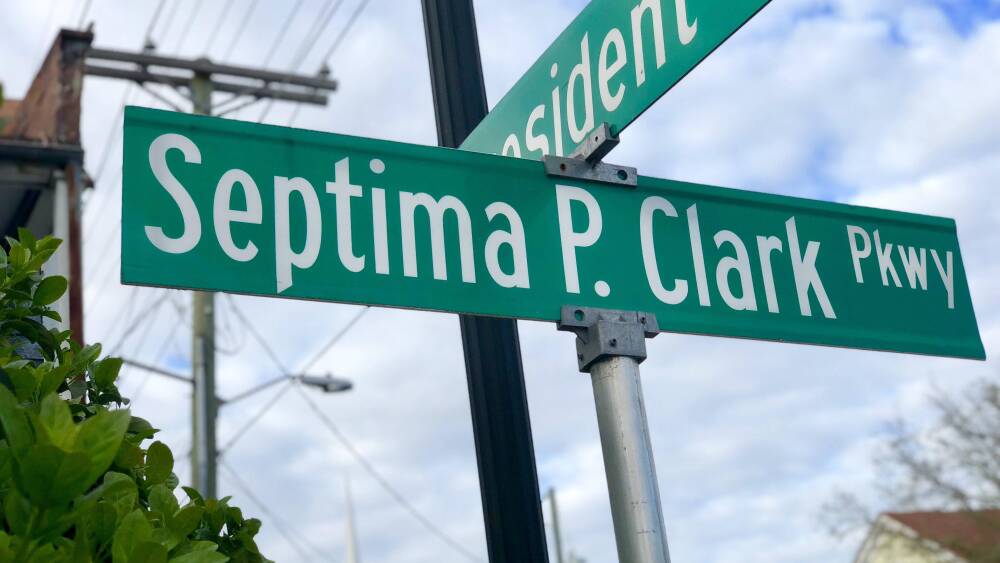Dr. Martin Luther King, Jr. called Septima P. Clark the “Mother of the Movement.”
Yes, Septima P. Clark – as in, the Septima P. Clark Parkway. Otherwise known as the Crosstown.
Most can easily recall her name – but few recognize her legacy, which extends far beyond the congested thoroughfare named in her honor.
Born in Charleston around the turn of the 20th century, Clark began making her mark years before civil rights even became a national discussion. She spent decades weaving education into her activism, and in doing so laid the groundwork for the Civil Rights Movement.
- 1898: Septima Poinsette Clark is born to Peter Porcher Poinsette + Victoria Anderson. The family lived on Henrietta Street in downtown Charleston.
- 1916: She received her teacher certification after attending the Avery Normal Institute, but was banned from teaching in her hometown because of the color of her skin. She instead began her teaching career outside city limits, on rural Johns Island.
- 1920: After returning to Charleston and joining the NAACP, she successfully petitioned the city to overturn its ban on black teachers after going door-to-door gathering signatures in support of the change.
- 1956: The state of South Carolina prohibited teachers from taking up membership in the NAACP – thus Clark was fired from her teaching job, along with 41 others in Charleston County.
- 1957: She moved to Tennessee where she taught civil rights workshops at the Highlander Folk School. Among her students: a woman by the name of Rosa Parks. It was there that she organized the concept of Citizen Schools—after hours programs that taught black adults basic reading + literacy along with skills that empowered them as members of the community— such as how to pay taxes, establish local voting leagues + use their voices to lobby for improved municipal services.
- 1961: Clark joined the Southern Christian Leadership Conference—led by Dr. Martin Luther King, Jr.— where she helped establish more than 800 Citizen Schools.
Later in the 1960s, the Crosstown Expressway was constructed – and ironically became a point of racial contention, as it was built through a historically black neighborhood, displacing many of its residents.
By 1978, the city, along with the state DOT, erected a marker honoring Clark beside it – but it wasn’t until 2010 that the expressway’s name was officially changed to the Septima P. Clark Parkway, as a permanent reminder of the racial barriers she broke within her lifetime.
Septima P. Clark believed that knowledge equaled empowerment, calling ignorance “the greatest evil in our country.” She encouraged everyone to seek knowledge rather than blindly believe what they are told.
In the spirit of education, share this article with someone who may not be familiar with Clark’s legacy– and share with us other local figures who deserve to have their stories heard. And to learn more about Clark’s life + work, check out this online exhibit hosted by the Lowcountry Digital Library at the College of Charleston.
—Jen, with assistance from Barrye at the Avery Research Center












